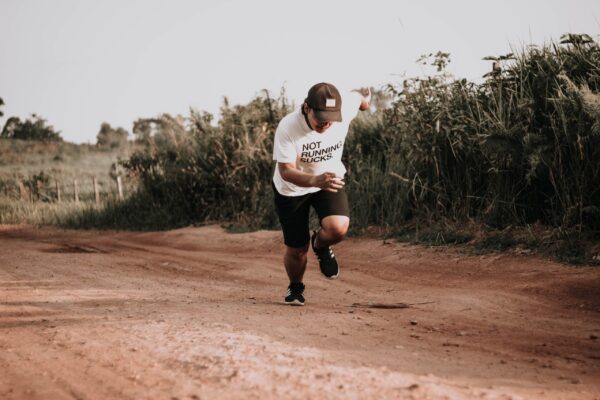Those of you who are doing some last-minute training for the Bryce Half-Marathon, this article is for you. Maybe you’re a high school athlete doing some extra summer running — if so, this article is for you, too. Those of you who are doing neither of those things can pretend with me that you will one day. Whoever you are, these tips for running in the summer heat may come in handy in the next few months.
Why Running in the Summer Can Be Good
Running in the summer heat can be really good for you. One study suggests that running during the summer reduces the chance of injury for high school cross-country runners. In short, runners who take summer breaks are more likely to get injured because they’re out of the habit. It’s good to keep up a good running habit, and it actually helps you keep from getting injured in the fall as long as you don’t push too hard.
But there is always the risk of pushing yourself to the point of heat exhaustion, dehydration or even heatstroke. These conditions can be quite dangerous, which is why there are always medics at the end of races.
So you want to keep up your summer running habit without putting yourself at risk? Well, here are some extra precautions you can take:
Don’t Push Yourself So Hard
Running feels a lot harder in the heat. And that’s because it is! According to Outside Magazine, when you sweat a lot and get dehydrated, your blood gets thicker. Your heart then has to use more energy to pump blood throughout your body.
Outside concludes that to make up for this, you “will need to slow down to maintain the same effort.” It’s okay to not PR (personal record) in the middle of July — that’s what fall sports and marathons are for.
Get Acclimatized to the Heat
A good way to reduce the risks of running in the summer is to get acclimatized to the heat. Basically, the more you run in the heat, the better equipped your body is to handle it. The CDC gave information on heat acclimatization for workers, but the principles are the same for runners.
To get acclimatized the CDC suggests increasing your time in the heat gradually over 1-2 weeks. Usually this will require about two hours of running in the heat every day (but those can be split into 1-hour sessions). Unfortunately, if you ever stop for a week or more, you’ll lose it and have to get acclimatized all over again.
Heat acclimatization is good because it improves your body’s ability to sweat more. It also keeps your heart and vitals working right in the heat. The reason most people have difficulties with running or working in the heat is because they have not been acclimatized.
Stay Hydrated
The most important thing when it comes to running in the heat is to hydrate yourself. Heat acclimatization and low humidity both cause you to sweat more. Sweating is good because it cools you off! But you’ll lose all of your water if you don’t continue to hydrate.
Carry lots of water with you while you run, and drink plenty of water before and after. There’s nothing worse than starting a race at low energy. Water will help keep you at 100 percent.
Running in the summer heat can actually be really good for you, but you have to be careful how you do it. If you are running this summer, don’t push yourself too much, get acclimatized to the heat, and hydrate, hydrate, hydrate.
– The Byway
Feature image caption: A runner sprints down a dirt road during some summer training. Courtesy Pexels.

